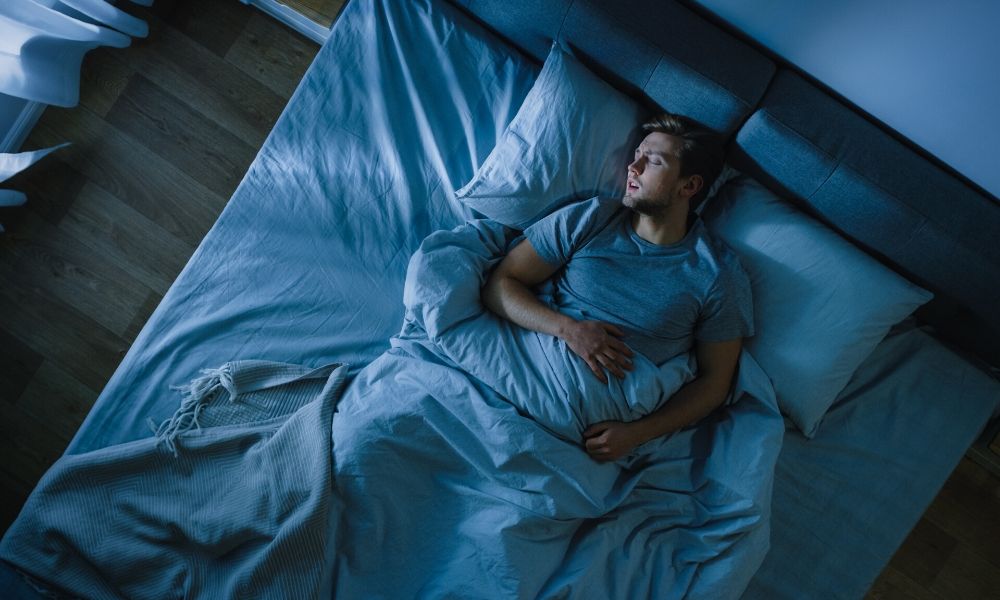Snoring can be extremely disruptive to the people who you share a room and bed with. One reason that you might be snoring is sleep apnea, which is extremely common in the United States. According to the American Sleep Apnea Association, “It is estimated that 22 million Americans suffer from sleep apnea, with 80 percent of the cases of moderate and severe obstructive sleep apnea undiagnosed.”
Sleep apnea essentially means that there are moments when you are sleeping and aren’t breathing. Sleep apnea can be extremely dangerous for obvious reasons—some other symptoms to look out for besides loud snoring include:
- Grasping for air when sleeping
- Reduced breaking
- Frequent trips to the bathroom to urinate at night
- Dry mouth or headaches while walking
- Sleepiness and fatigue during the day
- Choking and snorting during sleep
Below are some sleep apnea treatments you can follow at home to help you avoid the dangers of the condition.
Wear an Oral Appliance
To avoid disrupting the person you share a room with, you can wear an oral appliance to treat your sleep apnea. An oral appliance will hold your tongue in a position or move your jaw forward, so your airways don’t become blocked when you sleep.
Use an Airway Pressure Machine
You can also use an airway pressure machine to prevent any airway blockage as you sleep. To use an airway pressure machine, you have to wear a mask as you sleep, which hooks up to a device that will ensure your airway remains open.
Lose Weight
A common cause of sleep apnea is obesity. When people gain weight, they tend to have extra tissue in the throat. This extra tissue is another thing that can block airways. If you start to notice you have gained weight and suffer from the symptoms of sleep apnea, make a lifestyle change by adopting a healthy diet and getting regular exercise like yoga.
Quit Smoking
Smoking tabacco is unhealthy for several reasons. As it turns out, smoking can also be a cause of sleep apnea too because it increases mucus and implementation and fluid retention in your upper airway. Smoking can also damage the uvula and soft palate tissue in your upper air muscles too.
Avoid Alcohol and Sedatives
In addition to smoking, drinking alcohol or taking sedatives before you go to bed can also be a cause of sleep apnea. Alcohol and sedatives can cause sleep apnea because they relax the muscles in the throat, which can disrupt breathing.
Surgery
If you find sleep apnea symptoms in yourself or continue to experience issues, see an ENT doctor. A specialist can take the necessary steps forward with other sleep apnea treatments such as surgery. Some types of surgery that can cure sleep apnea include:
- Nasal Surgery
- Uvulopalatopharyngoplasty
- Tracheostomy
- Soft palate implants
- Lower jaw advancement
- Tongue base reduction
- Hyoid advancement


